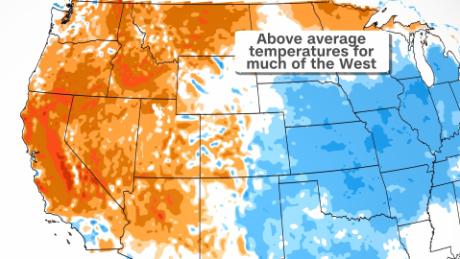Temperatures near a Western Canada beach topped 125 degrees, causing a massive marine life die-off
“I could smell that beach before I got to it, because there was already a lot of dead animals from the previous day, which was not the hottest of three,” he said. “I started having a look around just on my local beach and thought, ‘Oh, this, this can’t be good.'”
The next day, Harley and one of his students went to Lighthouse Park in West Vancouver, which he has been visiting for more than 12 years.
“It was a catastrophe over there,” he said. “There’s a really extensive mussel bed that coats the shore and most of those animals had died.”
Unprecedented heat
Mussels attach themselves to rocks and other surfaces and are used to being exposed to the air and sunlight during low tide, Harley said, but they generally can’t survive temperatures over 100 degrees for very long.
Temperatures in downtown Vancouver were 98.6 degrees on June 26, 99.5 on the 27 and 101.5 on the 28.
It was even hotter on the beach.
Harley and his student used a FLIR thermal imaging camera that found surface temperatures topping 125 degrees.
At this time of the year, low tide hits at the hottest part of the day in the area, so the animals can’t make it until the tide comes back in, he said.
“We saw heat records over the weekend only to be broken again the next day,” Kristina Dahl, a senior climate scientist at the Union of Concerned Scientists, told CNN, “particularly for a part of the country where this type of heat does not happen very often.”
It was also incredibly dangerous.
A billion animals may have died
He said that 50 to 100 mussels could live in a spot the size of the palm of your hand and that several thousand could fit in an area the size of a kitchen stovetop.
“There’s 4,000-some miles of shoreline in the Salish Sea, so when you start to scale up from what we’re seeing locally to what we’re expecting, based on what we know where mussels live, you get to some very big numbers very quickly,” he said. “Then you start adding in all the other species, some of which are even more abundant.”
“When we see mussel beds disappearing, they’re the main structuring species, so they’re almost like the trees in the forest that are providing a habitat for other species, so it’s really obvious when a mussel bead disappears,” he said. “When we start seeing die-offs of other smaller animals, because they’re moving around, because they’re not so dense, It’s not quite as obvious.”
He said the death of a muscle bed can cause “a cascading effect” on other species.
Both scientists were concerned that these heat waves were becoming more common and weren’t sure if the mussel beds would be able to recover.
“What worries me is that if you start getting heat waves like this, every 10 years instead of every 1,000 years or every five years, then it’s you’re getting hit too hard, too rapidly to actually ever recover,” Harley said. “And then the ecosystem is going to just look very, very different.”
![]()








